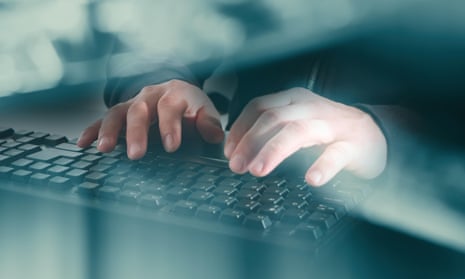The UK Investigatory Powers Bill has passed into law. This bill legalises a variety of tools for intercepting and hacking by security services and was waved through without complaint by both houses. Academics should be concerned – and engage in some serious discussion about the (mis-)use of technological advances.
Digital surveillance poses a real threat to academic freedom. Not only is our engagement with research participants no longer guaranteed to be secure, but the internet we access is increasingly censored. This impacts researchers engaging with vulnerable subjects, whether they’re former prisoners or animal rights activists. Our communication and data could be used against them.
The bill is just one way in which the digital environment is changing for academics. Blocking and filtering of content on university networks has become standard and embedded in internet-specific measures such as those set out in the Prevent strategy. This particularly affects security and terrorism scholars, whose research can be restricted or flagged up as suspicious. There is also a growing worry among ethic committees – made worse by the Boston College tape lawsuit – about whether to allow studies that touch the edges of the law. Alongside these changes, profiling technologies for monitoring students’ behaviour and performance are now flourishing.
As someone working on the sensitive research topic of hacking and politically motivated hacking – so-called hacktivism – these issues matter to me. Both phenomena are relevant to discussions on technical security, which has made me think more carefully about the safeguarding of my research data, and also our understanding of what constitutes security and insecurity online.
‘Nothing to hide’
My frustration about the rapid deterioration of privacy and unimpaired academic inquiry has been fed by the lack of critical engagement from fellow staff and students.
“I have nothing to hide” is a common response when I raise the topic with colleagues. And while I genuinely admire the certainty with which people believe themselves to be inculpable, I do think that academics underestimate the importance of thinking about these questions – if not for themselves, then at least for their participants.
Let’s reflect: we are teaching students about research ethics and methods. We require researchers to protect participants’ privacy and confidentiality. We have to pass institutional review boards, comply with good practice standards, and appoint data protection officers. Yet, in my experience, the most fundamental question of digital security remains absent from our lecture halls and daily practices.
I have seen research projects on vulnerable subjects pass ethics boards because someone claimed that they would lock transcripts or store them on password-protected computers. I have seen researchers going to conflict regions without proper clarity on how to save and transport their digital data. I have been to lectures that advise on moral dilemmas and methodological approaches but fail to outline how to effectively safeguard information. None of this protects researchers and participants if devices are stolen or forcefully taken from them.
While I acknowledge that these concerns might not affect and apply to all researchers equally, there is a risk of academics collecting data with potential unintended consequences such as the confiscation of research material and its use in court cases.
A changing landscape
Raising awareness of the need for digital security is one way to tackle the challenges of surveillance and censorship. The use of encryption and other tools such as The Onion Router or virtual private networks is key. Although their usage requires some basic technical familiarity, they make communication with vulnerable participants more secure and can protect data from unauthorised access or interference.
It is also important to keep up to date with the changing landscape of these tools through, for example, the CryptoParty movement, which runs autonomous global meetings introducing the public to cryptographic techniques. These meetings can be attended free of charge and without any prior knowledge or skills.
Academics must be more critical in the application of digital technologies; academia needs a public debate about the level of protection that scholars and participants can expect. We need to be outspoken about the increase of surveillance and censorship practices. Scientific advancement relies on scholars’ ability to conduct unobstructed inquiry.
Most importantly, institutions need to prepare staff and students for these challenges, and give them not only an ethical and methodological toolkit but also the ability to anticipate the effects of information being restricted, participants exposed, or intellectual property being stolen.
The UK Investigatory Powers Bill could be a wake-up call for the academic community. Hopefully we will respond.
Leonie Tanczer is one of the authors of Censorship and Surveillance in the Digital Age: The Technological Challenges for Academics
Join the higher education network for more comment, analysis and job opportunities, direct to your inbox. Follow us on Twitter @gdnhighered. And if you have an idea for a story, please read our guidelines and email your pitch to us at highereducationnetwork@theguardian.com
